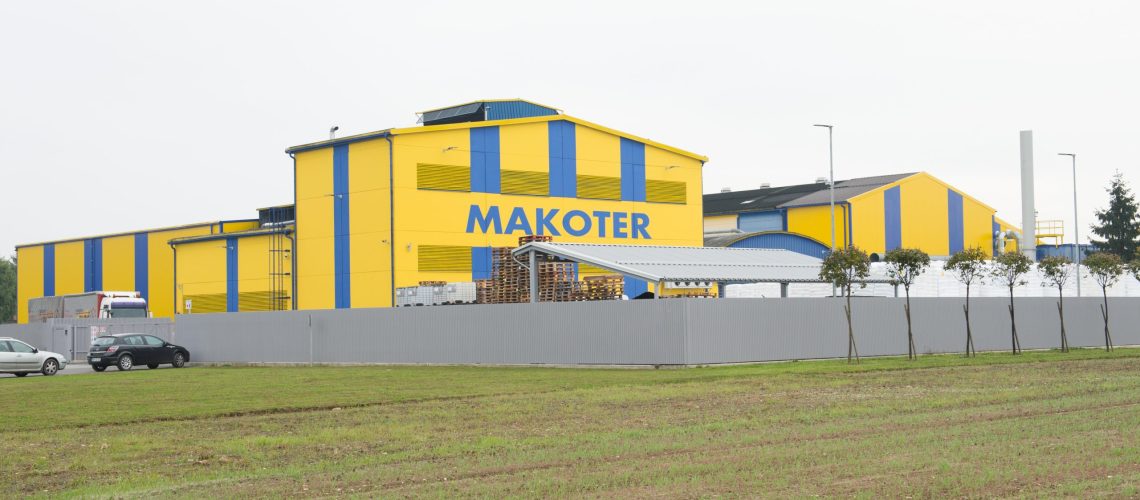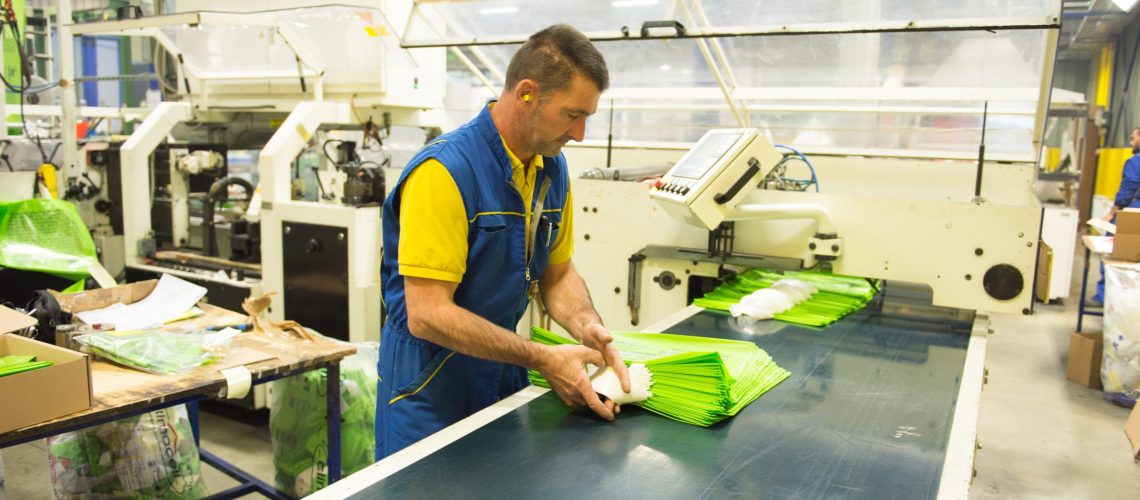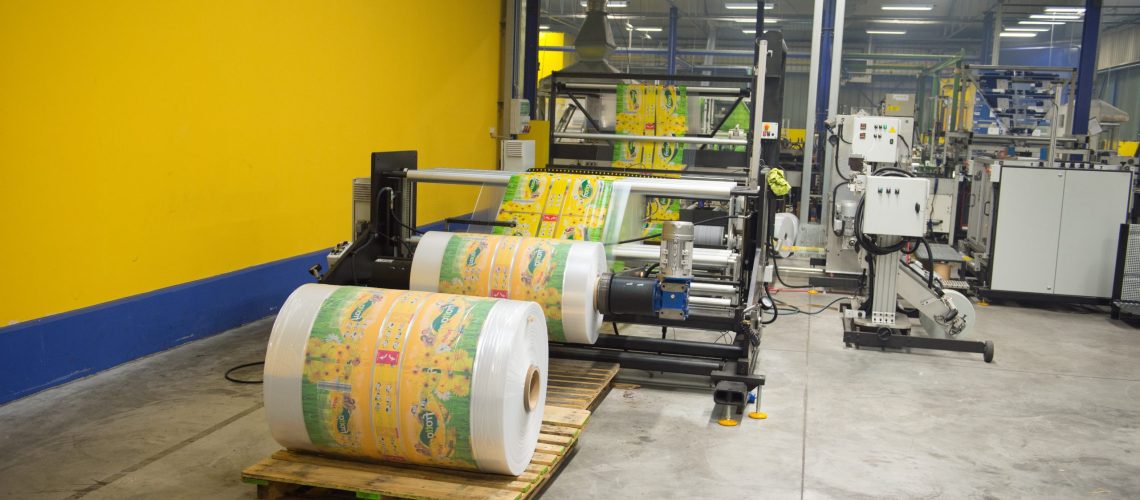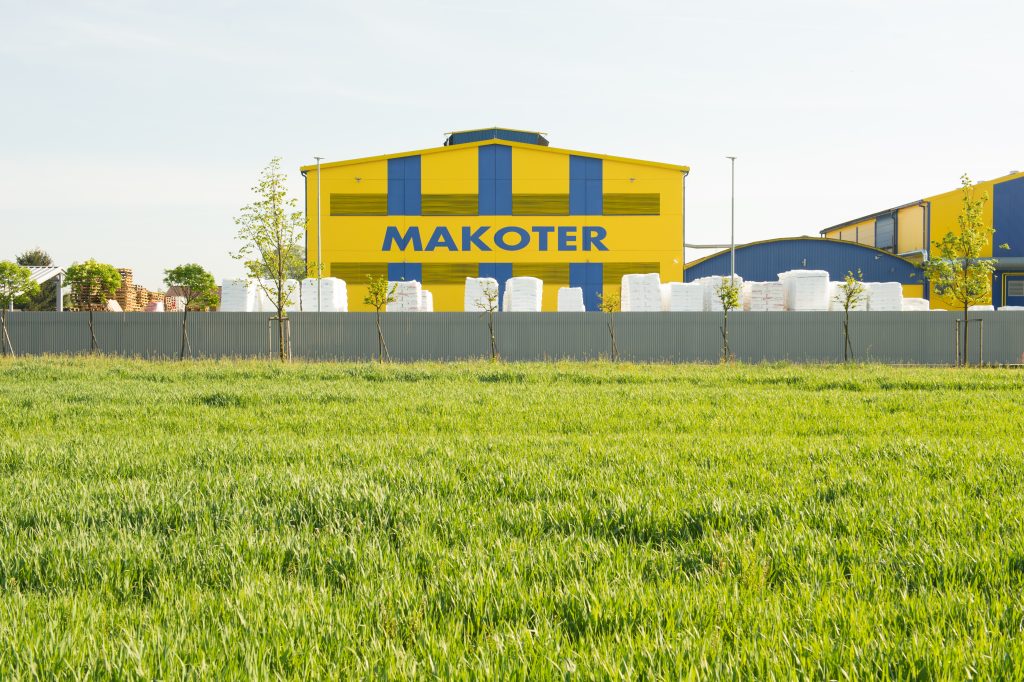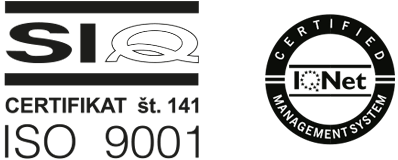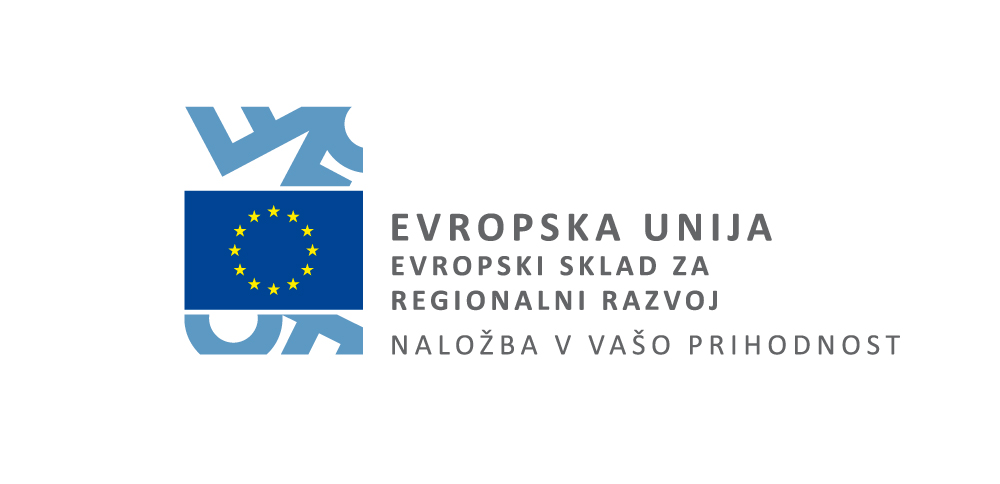
Digitalna preobrazba podjetja Makoter d.o.o.
Podjetje Makoter d.o.o. je na Javnem razpisu Spodbude za digitalno transformacijo MSP (P4D ReactEU) prejelo sofinanciranje za izvedbo operacije »Digitalna preobrazba podjetja Makoter d.o.o.«
Naložba se financira v okviru odziva Unije na pandemijo COVID-19.
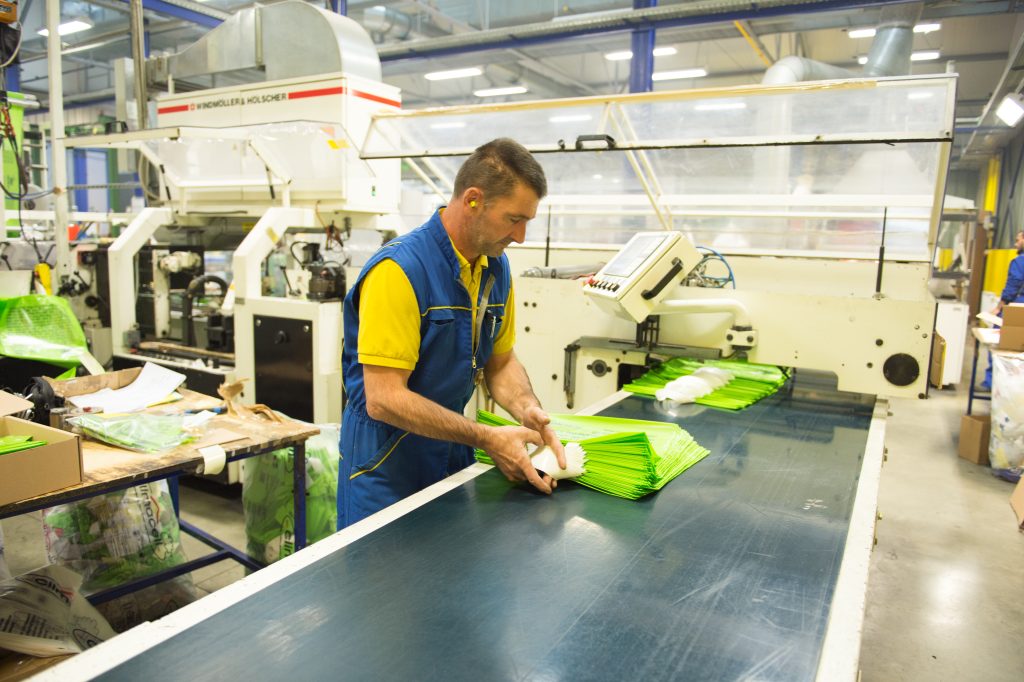
Vrečke
Reklamne vrečke (STT, DKT, majčka), za industrijsko pakiranje, za gospodinjstvo, z zapiranjem
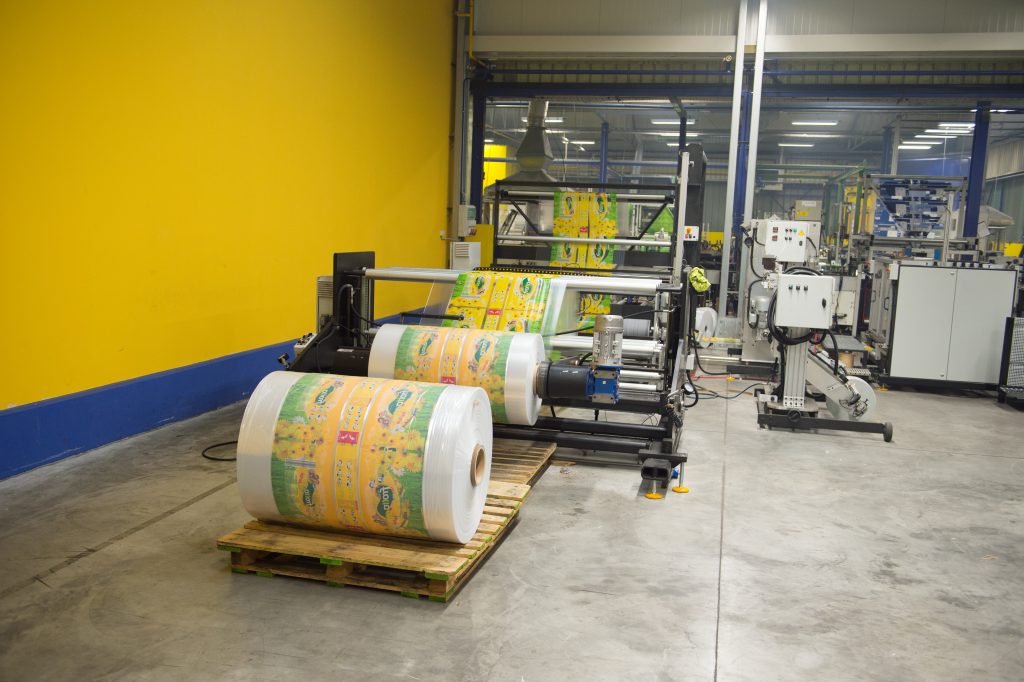
Folije
Gradbene folije, industrijsko pakiranje, polipropilen, strech folija, termo skrčljiva folija
Politika kakovosti
Politika kakovosti je najvišja zaveza vodstva podjetja Makoter d.o.o., ki mora z ustreznimi organizacijskimi prijemi in z zagotavljanjem virov, zagotoviti dolgoročno uspešno poslovanje, da bo sledilo viziji in dosegalo postavljene cilje v skladu s strateškimi usmeritvami. Kakovost je v podjetju Makoter d.o.o. uveljavljena vrednota, ki se je zavedamo vsi, ki sodelujemo v poslovnih procesih in pomeni bolje, ceneje, hitreje in varneje doseči zahteve vseh zainteresiranih strani. Nadaljnje izboljševanje dosegamo s postavljanjem ciljev. S pomočjo kazalnikov cilje procesov merimo, spremljamo in izboljšujemo. Za vodenje kakovosti uporabljamo standard kakovosti ISO 9001, s katerim smo postavili procese, jim določili cilje in skrbnike. Sistem kakovosti je navezan na zahteve za izdelke in storitve, s tem so cilji sistema kakovosti hkrati tudi cilji procesov in skladni s poslovnimi cilji podjetja.
Makoter skozi čas
Milica Makoter registrira popoldansko obrt.
Janko Makoter prevzame od Milice Makoter obrtno delavnico s površino 200 m2.
Izgradnja dodatnih 50 m2 poslovnih prostorov in nakup strojev za izdelavo PE folije in vrečk.
Nakup ekstruderja in tiskarskega stroja.
Nakup novega stroja za izdelovanje vrečk in ekstruderja za izdelavo folije. Dograditev dodatnih 200 m2 poslovnih prostorov.
Nakup dveh strojev za izdelavo PE folije, šest barvnega tiskarskega stroja in avtomatskega stroja za izdelavo vrečk. Število zaposlenih naraste na 10.
Dograditev nove proizvodne hale z jedilnico, garderobami in umivalnico s skupno površino 600 m2. Ureditev parkirišča. Število zaposlenih naraste na 17.
Ureditev in registracija podjetja Makoter d.o.o.
Izgradnja lastne transformatorske postaje.
Nakup dodatnih dveh strojev za izdelovanje vrečk in stroja za izdelavo klišejev.
Začetek delovanja podjetja Makoter d.o.o.
Prenos sredstev in prehod zaposlenih od podjetnika Janka Makoterja v podjetje Makoter d.o.o.
Pridobitev certifikata ISO 9001 za kvaliteto izdelkov in poslovanja.
Posodobitev proizvodnih zmogljivosti. Nakup ekstruderja za izdelavo trosloje PE folije, osem barvnega tiskarskega stroja, stroja za varjenje vrečk s fleksibilno ročko, izgradnja novega proizvodnega obrata. Skupna površina poslovnih procesov znaša 4.000 m2. Podjetje zaposluje že 62 delavcev.
Prihodki iz prodaje so presegli 20 milijonov nemških mark. Zmogljivost proizvodnje dosega 4500 ton letno. Podjetje ob koncu leta zaposluje 86 delavcev.
Nakup stroja za reciklažo odpadne folije in mešalnice barv. Podjetje ob koncu leta zaposluje 90 delavcev.v
Prihodki prodaje so dosegli cca.10 mio €, izvedene so bile investicije v infrastrukturo in povečanje kapacitet in izboljšanje kakovosti na obstoječi opremi; podjetje ob koncu leta zaposluje 92 delavcev.
Izvedene so bile investicije v višini cca. 88 mio SIT, največje od tega so zamenjava in povečanje trafo postaje, oprema grafike ter izgradnja nadstrešnice in prekritje strehe. Podjetje ob koncu leta zaposluje 103 delavce.
Nakup in zagon stroja za izdelavo vrečk DKT. Nakup in začetek uvedbe novega informacijskega sistema. Podjetje zaposluje ob koncu leta 111 ljudi.
Nakup in zagon INLINE tiskarskega stroja in koekstruderja. Uvedba novega informacijskega sistema. Podjetje zaposluje ob koncu leta 105 delavcev.
Razširitev svojih zmogljivosti z novim 8 barvnim flekso-tiskarskim strojem in konfekcijskim strojem za industrijske vrečke higienskega programa.
Podjetje Makoter stremi k zadovoljnim kupcem. Tako smo povečali naše kapaciteta z nakupom stroja za izdelavo vrečk z ročaji z namenom skrajšanja dobavnih rok. Zaradi učinkovitejše proizvodnjo smo dodatno investirali v napravo za predelavo odrezkov.
Investiranje v napravo za izdelavo vreč dolžine max. 4m ter registriranje nove dejavnosti GRADBENIŠTVO (fasaderska in pleskarska dela, izdelava KNAUF sistemov in ARMSTRONG stropov); podjetje ob koncu leta zaposluje 130 delavcev od tega 12 v gradbeništvu.
Investicija v novi 10 barvni tiskarski stroj.
Investiranje v novi stroj za izdelavo vrečk.
Zagon sežigalnice (RTO-REGENERATIVE THERMAL OXIDATION).
Investiranje v protihrupne zaščite, zaprti hladilni kompresijski sistem.
Izgradnja novih skladiščnih prostorov, novih proizvodnji prostorov ter zagon novega stroja za izdelovanje industrijskih vrečk.
Zagon novega tiskarskega stroja s širino tiska 1700mm.
Zagon novega stroja za izdelovanje industrijskih vrečk.
Zagon nove regeneracijske linije ter dveh strojev za izdelovanje industrijskih vrečk.
Zagon novega tiskarskega stroja.
Investiranje v novo rezalno linijo z lasersko perforacijo.
Nakup novega stroja za varjenje folij.
Nakup novega stroja za varjenje folij.
Vizija podjetja
Podjetje želi biti med vodilnimi proizvajalci higienske embalaže v Sloveniji in primerljivo z vodilnimi evropskimi proizvajalci.



